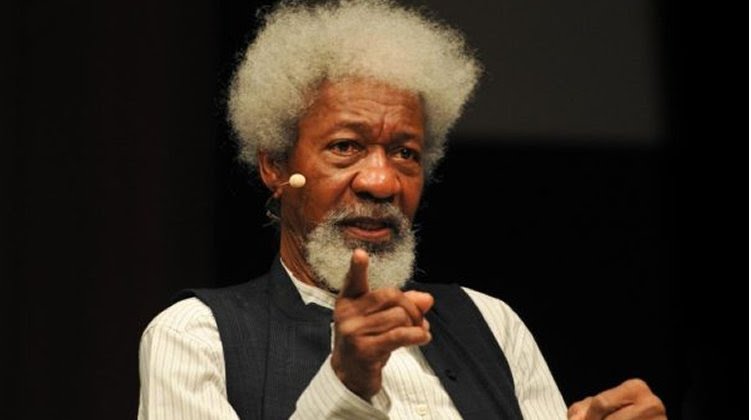Soyinka said this in a statement on Friday titled, ‘Off to Shock and Awe’ while reacting to Buhari’s recent statement wherein he recalled how he fought in the Biafran war of 1967-1970 and threatened to deal with “persons misbehaving” in the South-East in a language they understand.
The comment was widely condemned while social media giant, Twitter, deleted the post.
Reacting to Buhari’s statement, however, Soyinka said it was funny that Buhari never sounded tough over the killing of innocent persons in Benue but was quick to evoke memories of the civil war.
He wrote, “When, however, a head of state threatens to ‘shock’ civilian dissidents, to ‘deal with them in the language they understand’, and in a context that conveniently brackets opposition to governance with any blood thirsting enemies of state, we have to call attention to the precedent language of such a national leader under even more provocative, nation disintegrative circumstances.
“What a pity, and what a tragic setting, to discover that this language was accessible all the time to President Buhari, where and when it truly mattered, when it would have been not only appropriate, but deserved and mandatory!
The Nobel laureate said after much internal pressure, Buhari eventually visited the scene of slaughter in Benue but rather than threaten to “shock the killers” the President asked them to “learn to live peacefully with your neighbours”.
He said Buhari only later asked security agents to shoot criminals on sight after much pressure, a move which he said was belated.
Soyinka argued that the world had moved on from the civil war and wondered why Buhari still spoke of it with nostalgia.
“The evocation of the civil war, where millions of civilians perished, is an unworthy emotive ploy that has run its course. In any case – and this has been voiced all too often, and loudly – the nation is already at war, and of a far more potentially devastating dimension than it has ever known.
“Every single occupant of this nation space called Nigeria has been declared potential casualty, children being pushed to the very battlefront, without a semblance of protective cover. We have betrayed the future. We need no breast-beating about past wars. The world has moved on, so have nations,” he wrote.



